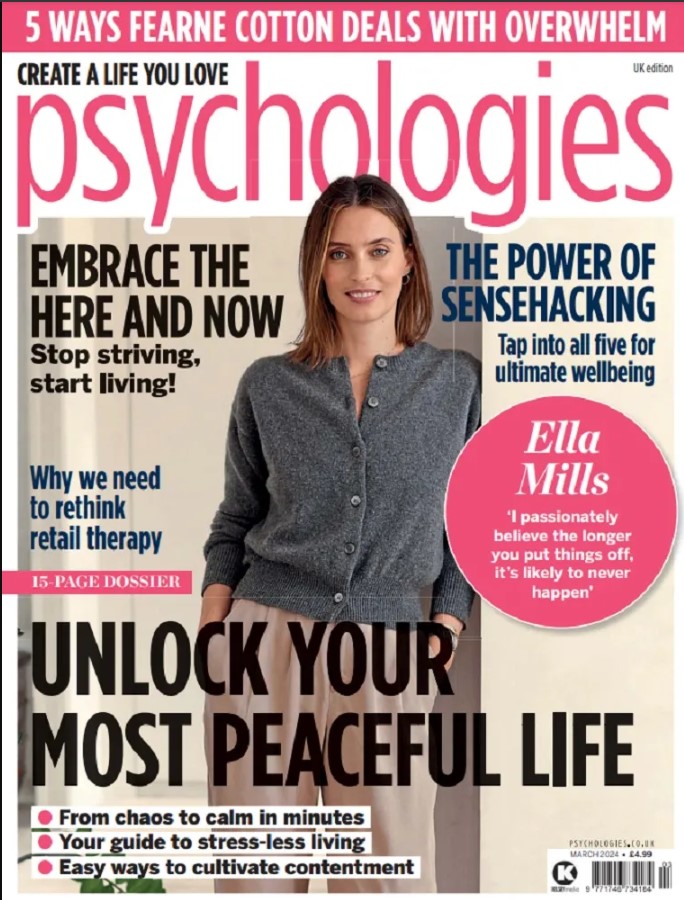Navigating the festive holidays with the brain in mind
This blog considers strategies that can help keep you in a calm and positive zone during one of the most hectic times of the year.

Here we go again. The holiday season is almost upon us. It is a glorious time of the year. But it can also be highly stressful because we want everything to be flawless, and feel tense and upset when it is not. Bombarded by images of perfection on social media and in advertising, we often find it hard to remain detached. It’s so easy to fall into the trap of believing that this purchase or that possession will somehow make us “better” or “complete.”
Add to this the tension that can arise when extended family members and friends are gathered together in closer proximity than usual, and it’s no surprise that the pressure to deliver the “perfect” holiday experience can be unbearable. Unchecked, this tension can erupt as angry words and result in upsetting conversations and disappointment.
Perhaps you’ve experienced this? Something is said that jars you, and you begin to feel annoyed. Can you recognise what is happening? Are you able to stop before you say something you will later regret? Or has the brain’s autopilot already tipped you into fight-or-flight mode?
In his book Emotional Intelligence, psychologist Daniel Goleman calls this state of being the “amygdala hijack.” Goleman explains that although we have evolved as humans, we retain the ability to respond quickly and instinctively to any threat. That’s essential in genuinely life-threating situations, but more often, the trigger is the perception of risk.
The human brain is continually scanning the environment to keep us safe, asking, “Is this a threat or a reward?” Depending on the answer, we can react by acting to defend or rushing forward to embrace the reward. The brain’s autopilot response is so robust that, unless we take steps to reclaim sovereignty, it can propel us to make poor choices and even result in destructive behaviour.
But it doesn’t have to be this way. Let’s explore a different approach with the brain in mind that can lead to having better conversations.
No Awareness, No Choices
Noticing what is going on is always the first step in regaining self-control and avoiding the amygdala hijack. For example, the chances are that you’re stuck on autopilot if you find yourself saying or thinking in all-or-nothing phrases, such as:
- “Everyone says that …”
- “Everybody knows that ….”
- “You don’t get it ….”
- “You never ….”
- “You always …”
The key is self-awareness. If you can notice when this happens and deliberately slow down your reactions, you can come off autopilot.
Press Pause, Just W.A.I.T
Learning to recognise when you have tipped into automatic pilot is critical. You will feel physical symptoms due to the adrenaline that is pumping through your body—trembling, perspiration, rapid breathing, quickening heartbeat. Take back control by slowing down your response. Pause, breathe deeply, and try using the useful mental tripwire W.A.I.T. This acronym stands for What Am I Thinking? and Why Am I Talking? Practising it can help you avoid instantly reacting to someone’s attitude or comment. Then you can give a considered response.
Name Your Emotions
Often FEAR is a key driver. This acronym stands for False Evidence Appearing Real. This phenomenon occurs when we are on autopilot and react instinctively to a perceived threat. Our brain focuses on the worst-case scenario and collects evidence of this in a person’s behaviour toward us. Confirmation bias is the human tendency to search for, interpret, and recall information in a way that confirms our beliefs. The combination of FEAR and confirmation bias can be toxic.
You can help calm a racing mind by naming the emotions that you’re experiencing. Then reframe your thinking to depersonalise what you notice. For example, replacing I feel anxious with There’s anxiety. Then you can acknowledge the emotion but not become it. After all, we only become our thoughts if we act on them.
Be Curious
Excellent communication often stems from being a good listener. Dial-up your curiosity and listen with empathy. Focus on understanding the other person’s position (What is it they want?) as well as their interests (What is driving them to take that position?) and priorities (What is more and less important to them, and why?). Now think about the common ground that you share with the other person. This is a good place from which to build a positive dialogue.
It also helps to reflect on how you have successfully handled an awkward conversation in the past. What can you do now? People respond better to those who take the time to understand their needs and viewpoints. In turn, this generates trust and creates the goodwill that leads to better conversations at any time of the year.
Beverly Landais PCC
Certified Personal & Team Coach: enabling people to be at their resourceful best
We live in an ever-changing dynamic world. At best, this can be exhilarating and provide excellent opportunities for personal growth. At worst, it can be exhausting and stressful as you try to do it all, which can lead to the feeling that you are doing nothing well. Maybe you are in such a situation? Perhaps you have reached a point where you long to create the life that you want rather than the one that is happening? If so, I may be the right coach to support you. My purpose is simple. I work with people to help them be at their resourceful best. I bring all of my expertise to the service of my clients. My skill set includes 30 years of experience in business, including board level. As a Professional Certified Coach and Positive Psychology Practitioner, I can help you to think your options through, make better choices and do the things that promote wellbeing, bring personal as well as professional satisfaction and make you happy. I am particularly skilled in supporting those who are at a crossroads in their life. My coaching approach can help you gain a clear understanding of your values, motivators, drivers, strengths and consider the impact of blind spots – and what you can do to mitigate these. I work via video calls, by phone and email. Should you wish to arrange a 30-minute complimentary discovery session, please contact me via connect@beverlylandais.co.uk



